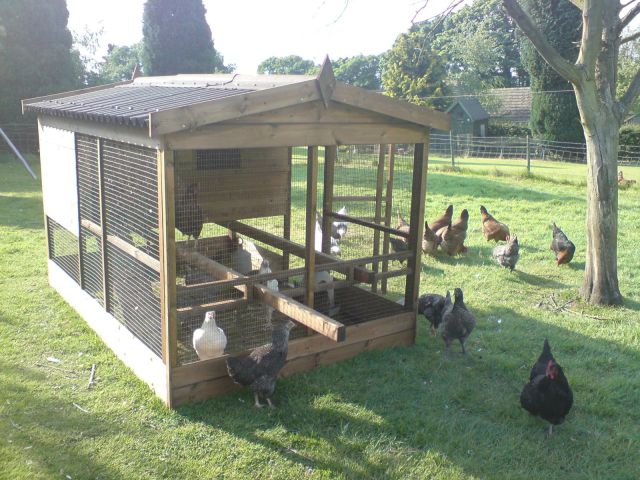Chicken house daily inspection is one thing most people forget, but it’s also something that should be done daily in making sure your flock is safe. It doesn’t take long; it will probably take 2 minutes or less. A daily coop damage inspection should be a part of your regular maintenance routine.
Having a predator-secure coop is not enough. The truth is, if you have determined predators, they can do enough chicken house damage that they can break into any house over a period of days, so it’s up to you to catch the coop damage in time to take steps.
Here are pointers to do a 4 daily chicken house damage inspection:
1. Look for cracked wood near doors and windows
This could mean something has been trying to strong-arm its way into your chicken house pry open a door or window, break a lock, or just pull out screws. Make sure to check locks and latches every day, and replace weak wood with strong, or reinforce with metal.
2. Look for chewed wood
Do this especially at corners and near windows and doors, can mean mongoose, or even just small rodents are trying to get in. You can reinforce corners and edges with metal plate, or welded wire hardware cloth. Be especially wary if your house has a wooden floor that you can’t get beneath to inspect. If they’re tunneling up or chewing in from below, the first sign there is a problem might be when you lose a bird.
3. Look for bent wire
This can mean something is trying to squeeze through your chicken run space, or pry up the security on your windows or ventilation. Don’t use “chicken wire” or “poultry wire” to make an area secure. Chicken wire is designed to keep chickens in, not to keep predators out. Welded wire hardware cloth is more secure against predators but even then, it will need to be tight at edges and corners.
4. Look for digging
Look for digging under the coop, or at the fence. The simplest way to deal with this is usually improvise, in other words, a wire barrier that extends horizontally on or slightly beneath the ground, to a foot or so out from the fence. Predators will not be able to dig through the wire, and they generally can’t figure out how to get around it
If you really want to avoid any flock loss from any kind of predator attacks, then always do these inspections.








